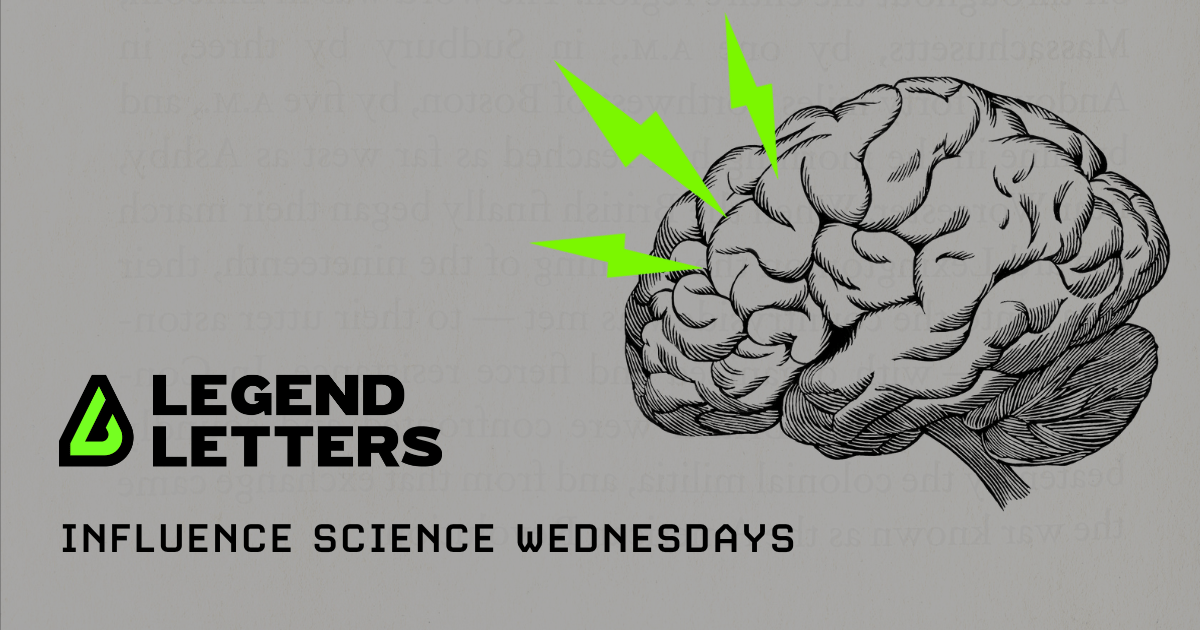Want a FREE copy of the Legendary One-Liner playbook? (Create a line that wins hearts and open doors)
If you’re interested, click YAAAS! below, and I’ll send you a separate email about it.

📖 STORY
The smell of meatballs, basil and olive oil, the sound of silverware being placed on the kitchen table.
A perfect beginning to dinner was about to turn south… I just didn’t know it yet. This was about two years ago.
I started dishing a beautiful steaming portion of spaghetti and meatball onto my then 7 year old’s plate when he made a declaration “I want a blue cup! Why does Violet always get a blue cup!”
He picked the “perfect” time. All the other blue cups were in the dishwasher and there was only one blue cup left and he knew it
You guessed it… pandemonium.
He flopped on the floor and had a full on meltdown and my 2 year old, Violet started screaming because tonight was the night where she HAD to have the blue cup.
Welcome to the Scarcity Effect.
This psychological quirk is the reason we get FOMO, why “only 3 left” gets us to click Buy Now, and why limited editions always sell out.
When something is scarce, our brain perceives it as more valuable.
Not because of what it is but because we might not get another chance.
That blue cup? It was perceived to be instantly more valuable when there was only one left. (Yes, I had to wash another cup to prevent WWIII)

🧪 STUDY
In 1975, psychologists Stephen Worchel, Jerry Lee, and Akanbi Adewole ran a simple cookie experiment.
Participants were given a jar of cookies to sample from.
🍪 Group A: Jar had 10 cookies
🍪 Group B: Jar had 2 cookies
The cookies were identical.
But people rated the scarce cookies as more desirable, more attractive, and better-tasting.
Same cookie. More value.
Just because there were fewer.
WHY THIS WORKS
🧠 Perceived Value Boost
Scarcity triggers our mental shortcut: “If it’s rare, it must be valuable.”
🧠 Loss Aversion
The fear of missing out activates the pain centers of the brain, urging us to act fast.
🧠 Social Proof (Implied)
We assume if it’s almost gone, others must have wanted it so we should too.
Scarcity doesn’t just sell.
It compels.

♟ STRATEGY
Here’s how to use the Scarcity Effect to influence behavior (without being sleazy):
✅ Marketers → Use limited-time offers, waitlists, or limited inventory (but only if it’s true). Scarcity must be real to retain trust.
✅ Business Owners → Limit slots for consults, programs, or VIP offers. It adds urgency and elevates perceived value.
✅ Leaders → Make your time selectively scarce. Have open door hours instead of “Doors ALWAYS open” If you're always available, your team members may not actually come to you for help.
✅ Professionals → Signal exclusivity in your expertise. For example: “I only take on one deep-dive project per quarter.”
✅ Personal Life → Use boundaries intentionally. Scarcity isn’t just about products. Time, energy, attention. They’re all currencies.
Scarcity is powerful.
But only when it’s real.
Don’t fake it.
Frame it.
Make your mark, live your legend 🤘🏽
I’ll see you on Sunday!

Howie Chan
Creator of Legend Letters

How did you like today's Legend Letters?
WHENEVER YOU ARE READY
1/ Your Personal/ Professional Brand
”How do I package my genius into a clear, compelling brand?” Whether you want a quick high impact call or a complete done for you strategy, there’s a fit.
“What exceeded my expectations? The power of the brand idea & how easy it has been to immediately use it as I describe to others what I’m up to.”
2/ Hire me to speak to your team
Companies don’t become great. Great people make great companies. Organizations trust Howie Chan to bring programs that are provocative, actionable, and spicy 🌶 so every individual leave with a sense of fresh purpose and passion for greatness.
Are you ready?

